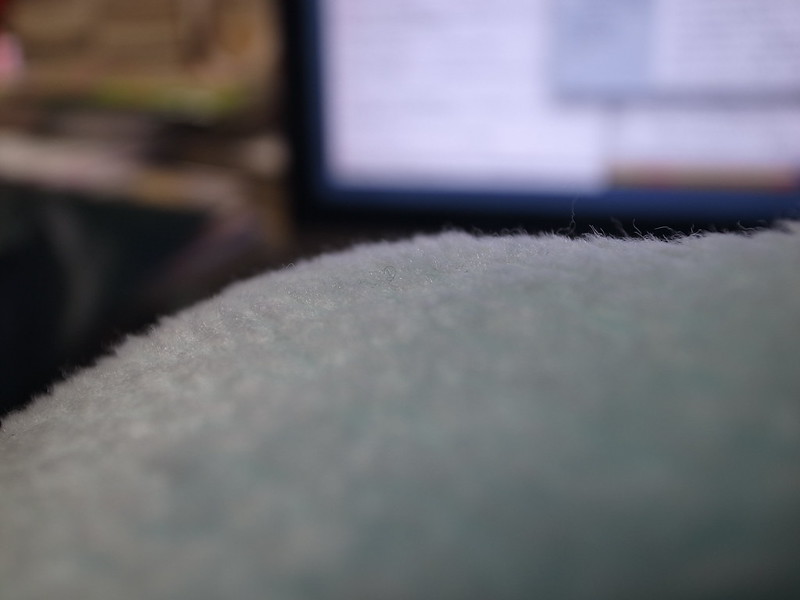Fluorescent lighting, lemon-scented cleaner and recently mopped tile floors. The sights and smells of a hospital floor were slowly becoming familiar to me as I wound my way around corner after corner bright and early at 6:15 a.m. on a Thursday morning. While for everyone else, it was an average Thursday, for me, it was my first Thursday of my third year of medical school.
“Female in her early to mid twenties, having seizures in the ED” was all I was told by the tired ARNP whom I had been working with for the past week. I had yet to see a patient with seizures in my whopping three days of my neurology rotation. Excitedly, I began to look through her chart with the fervor that only someone new to the process could muster. Given the 30 minutes, I had to review my heavy caseload of one single patient, I scrolled back to the very beginning.
Yes, she was having seizures, not from epilepsy, but rather due to brain metastasis from her stage IV breast cancer. Two weeks prior, she had been taken off all medications and sent home to be comfortable. Diving deeper, I learned that she had been diagnosed at 18, right when she was about to start college with aspirations of being a pre-med major and attending medical school. The parallels to myself were apparent. In another world, she could have been one of my classmates, a partner in a small group, maybe even a friend. Based on the most recent note written by the emergency room physician, she has had many seizures in the past, suffering from one of the most feared neurological pathologies: status epilepticus. She was questionably responsive.
Recognizing that I had never seen a consult in the emergency room by myself and was unsure of how to even get to the emergency room, I asked for help. I found myself sweating through my new scrubs and still freshly dry-cleaned white coat as we wound our way through the twists and turns of the hospital to the first floor and finally to the emergency room. I was ready to take a history and do a complete neurological exam just as I had practiced religiously in the past two years. I would walk into the room, cheerily introduce myself, wash my hands and begin asking questions.
Only this time, when I walked into the room, there was not a patient pretending to be in pain as they had in every standardized patient exam. There was beeping. Tremendous amounts of asynchronous beeping correlating to every machine she was hooked up to. The only indication that she was there were wires pouring out of blankets; so small and frail that I could barely see her under the warm blankets placed over her. Her teary-eyed and exhausted family sitting in the corner after a night of watching her suffer through seizure after seizure while waiting for EMS to arrive.
I would love to say that I had all the right words for the situation. But I did not. In fact, I had no words. I froze. It did not matter that I knew the details of the patient’s chart better than anyone else on the team, had the ability to give a high quality and succinct patient presentation, and had researched the mechanism of action of her prior chemotherapy medications. I froze, not because I was not taught how to deal with emotional scenarios or because I did not have empathy for her situation, but because there is nothing that prepares you for the first time you are overcome with emotions.
When reflecting on how I felt walking into that room, I now know there is a word to describe it: impotence.
No, not as in erectile dysfunction. I mean the inability to take effective action or the feeling of helplessness.
While this was the first time I felt this way, I am sure it will not be the last. The only thing I can do is work on how I deal with this feeling when it arises. As medical students, we often feel inadequate when we do not immediately have the right answer; we are used to being on a timer. However, once we step out of the classroom, we are no longer alone staring at a multiple-choice question with our fingers crossed, hoping that the hours of studying help us pick the right answer. We are now surrounded by a hospital full of people that we can discuss difficult cases with. Asking for help is not a sign of weakness, instead I see this collaboration daily when physicians place consults and discuss complex treatment plans casually at lunch. As a student, I watch these conversations in awe realizing the teamwork involved in each patient’s care.
Fortunately, before going down to the emergency room, I leaned on my team and brought someone with the experience necessary to carefully navigate the difficult situation. I watched her comfort the family with the kindness and empathy that I strive to emulate. Hopefully next time I am in this scenario, I can pull on the skills I have learned both in the classroom and through newfound experiences in difficult situations to be the physician that my patients both need and deserve.
Image credit: “Blanket” (CC BY-SA 2.0) by matsuyuki

